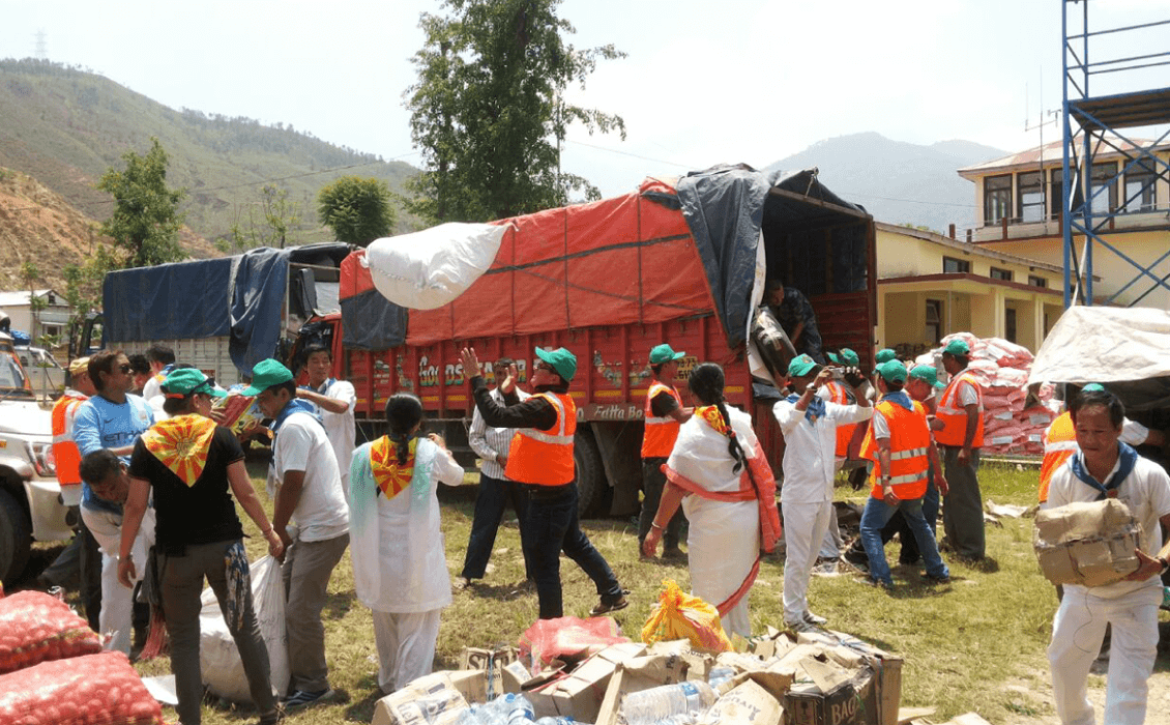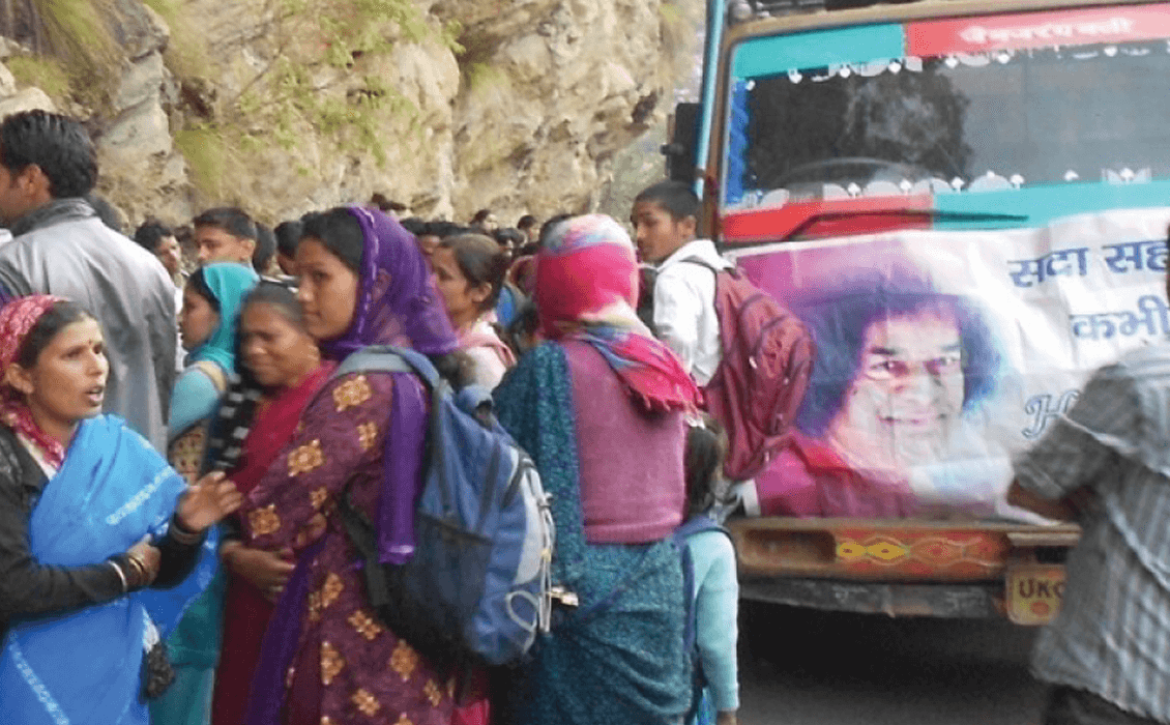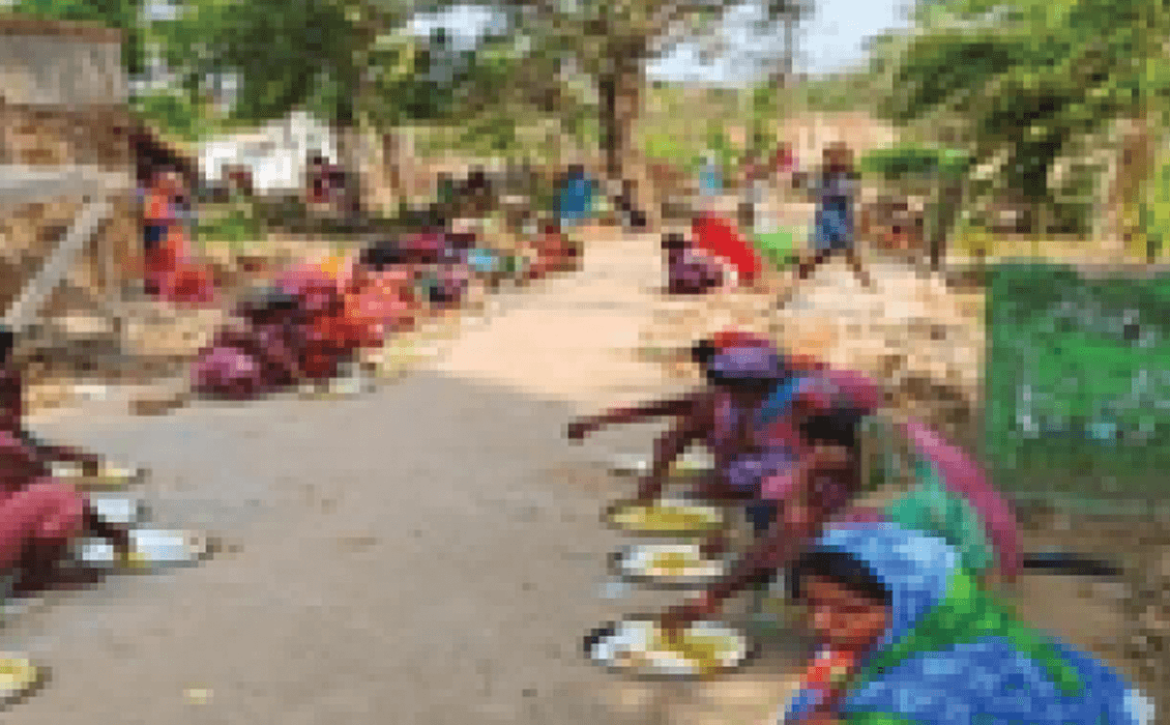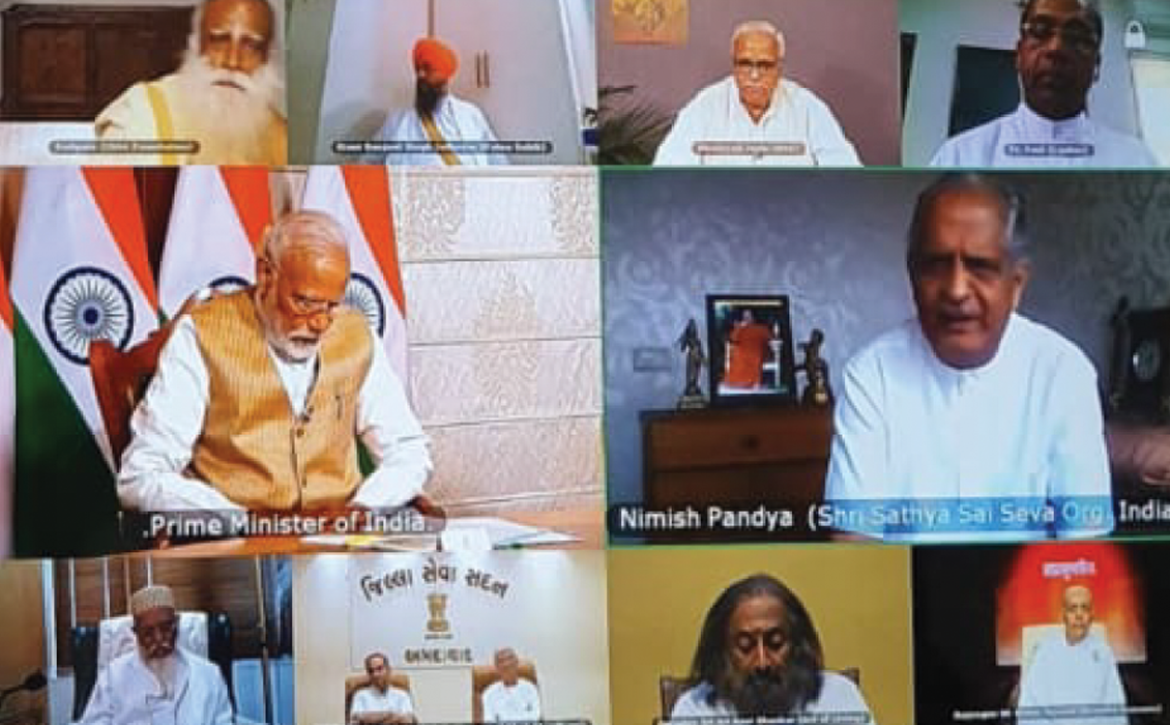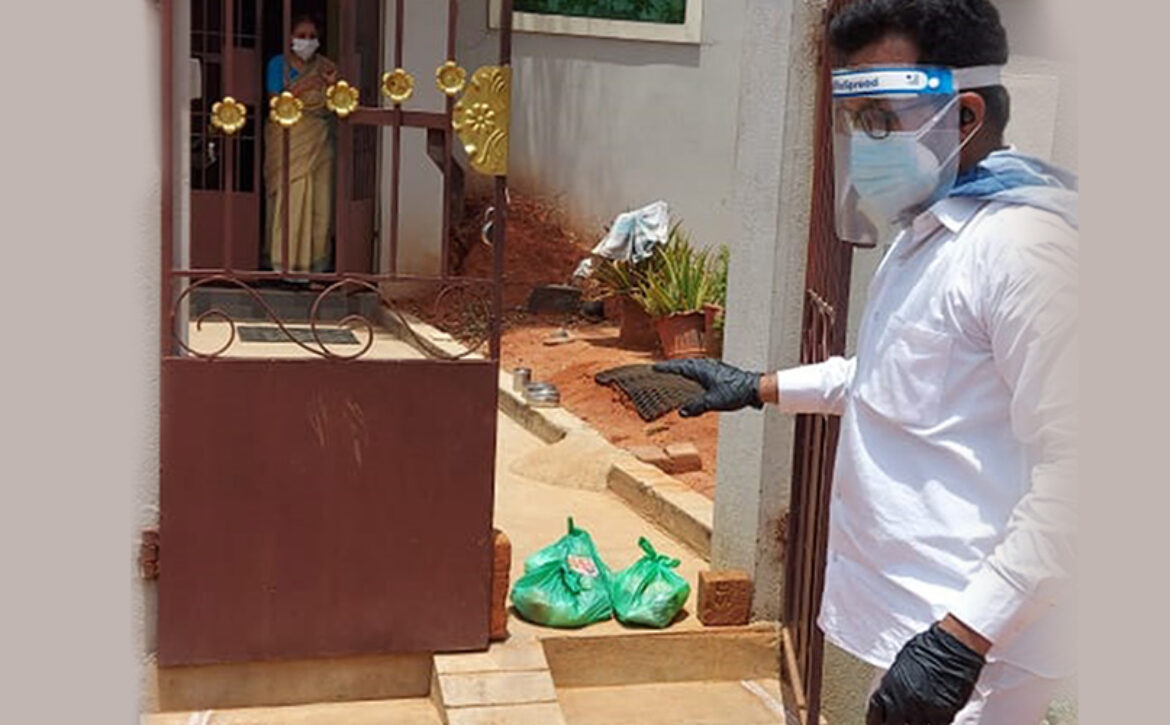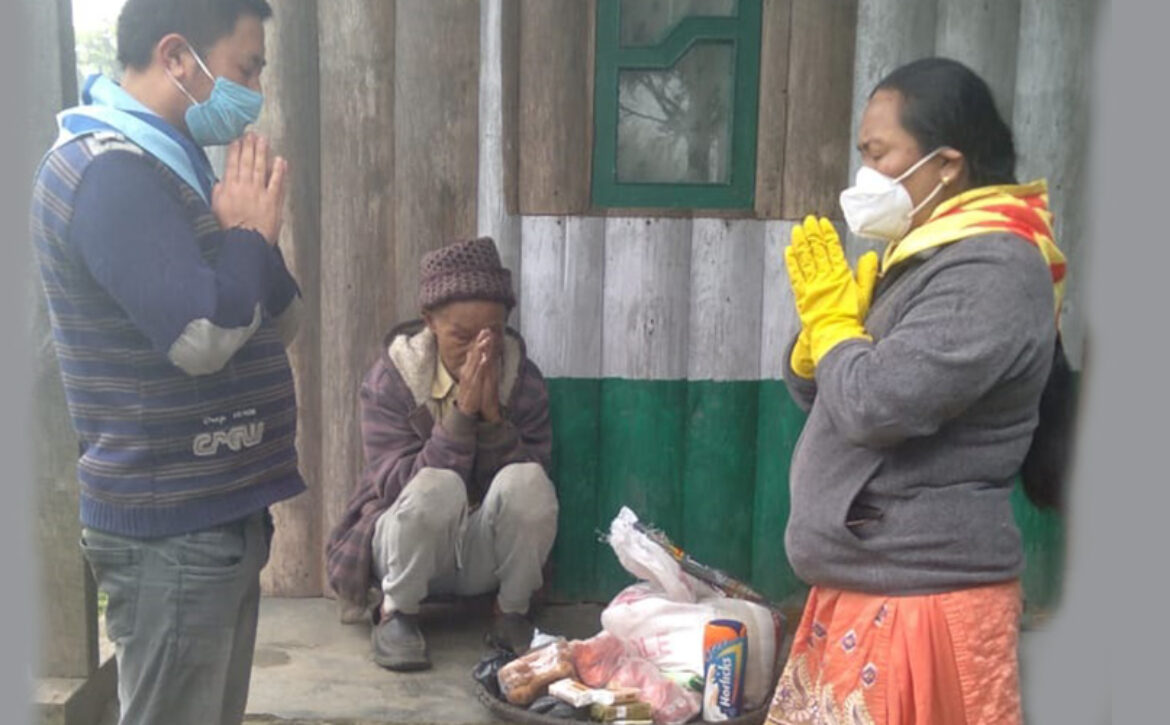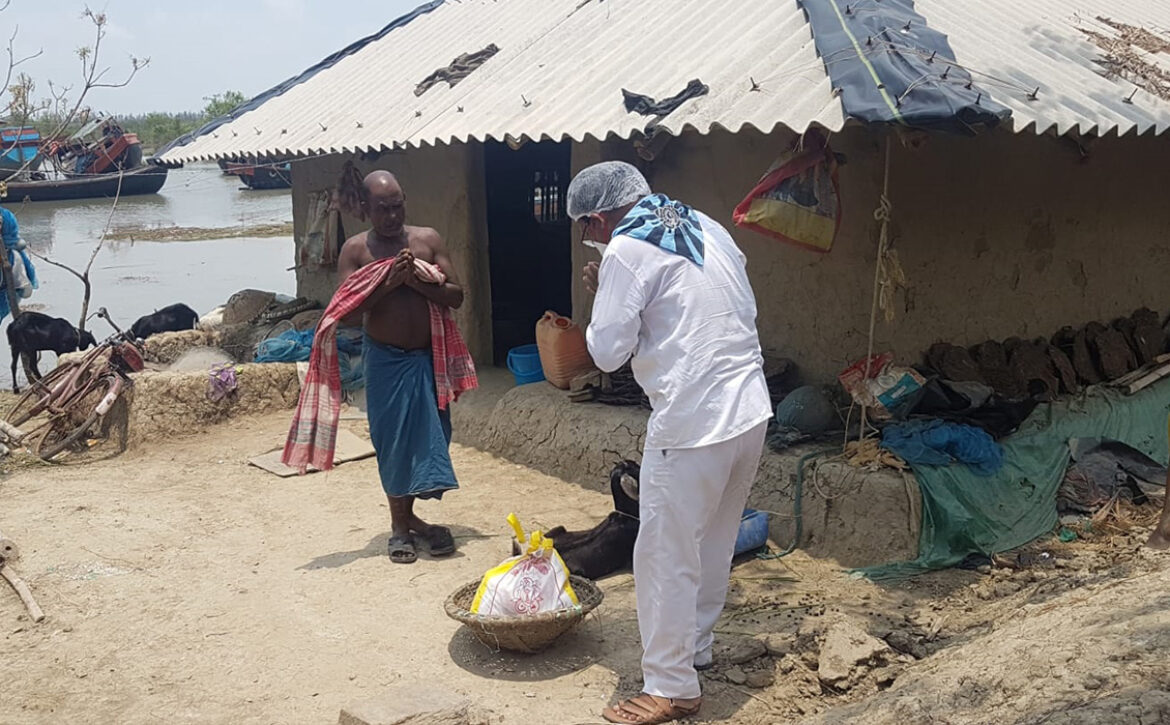Sikkim’s AU-rounder Disaster Management Team
18th September 2011 will perhaps remain etched in the memory of every Sikkimese.lt was the day an
earthquake measuring 6.9 on the Richter scale struck the state. The Sai Disaster Management Team
worked round the clock for a week in restoring normalcy for the victims. The majority of efforts were
in Ungzya, North Sikkim, which had suffered the most damage. The SSSSO OM Team’s major works
included drinking water supply at several populated places, a temporary water supply line in the camp
area, visits to affected areas, supplying of essential commodities, counseling, and conducting mass
prayer sessions.
The state’s experience
with the 2011 earthquake
spurred the OM
Team under SSSSO,
Sikkim, to train large
numbers of Seva Dais in
Disaster Management
so that they are ready
and available for a rapid
response in the event of
disasters not only in
Sikkim but also in the neighboring states.

The DM team conducts about six or seven training programmes annually. As
a result, there is a strong group of 600 trained youth volunteers that can be mobilized to serve
whenever there is a need. Volunteers are spread across six districts.
The DM Team has participated in mock drills conducted by the State Government in partnership
with NDRF on multiple occasions and at various locations. The NDRF has also provided a week –
long training to SSSSO Members at Namchi, South Sikkim.
The trained Seva Dais in the DM Team have had opportunities to serve the citizens in the aftermath
of disasters over the years in their own state, as well as neighboring states. The comprehensive OM
training has contributed to the team’s effective response to different types of disasters, whether
earthquake {in Nepal), floods (West Bengal, Sikkim, Assam) or fire (Sikkim).

On 25th April 2015, when Nepal experienced
a major earthquake measuring 7.9
on the Richter scale, the Sai DM team
quickly got into action and initiated relief
measures focusing on shelter, food, water,
medicine, and clothing. A 42-member DM
Team of SSSSO Sikkim, with four trucks
fully loaded with relief materials worth
~8,00,000 and seven other light vehicles
carrying team members proceeded to
Ramechap on May 1, 2015 with due permission
of the Nepal Government.







































